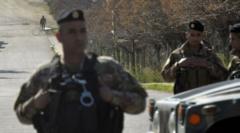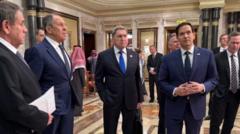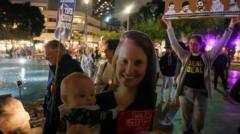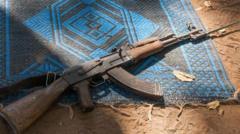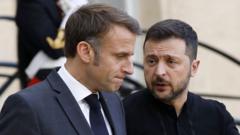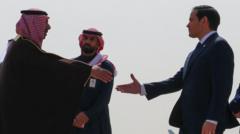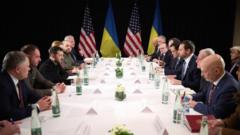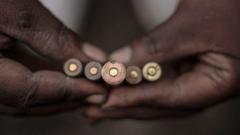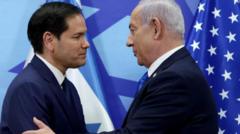As Israel seeks to extend its troop withdrawal deadline from southern Lebanon, local authorities and Hezbollah navigate a landscape fraught with historical grievances and ongoing military actions. With calls for sovereignty and security, the situation reflects the complexities of Middle Eastern geopolitics.
Israel Requests Further Extension for Troop Withdrawal from Southern Lebanon
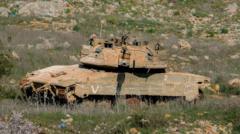
Israel Requests Further Extension for Troop Withdrawal from Southern Lebanon
Amidst tensions and a complicated ceasefire, Israel seeks more time for its military presence in Lebanon, sparking debates on sovereignty and security in the region.
Israel is reportedly asking for an extension of the deadline for its troop withdrawal from southern Lebanon, raising concerns in a nation with enduring memories of Israeli occupation. A Western diplomatic source confirmed that Israel aims to maintain military positions in five areas for an additional 10 days, pushing the deadline to February 28. This request follows a ceasefire agreement, which was enacted on November 27 after 14 months of conflict between Israel and Hezbollah, and was brokered by the US and France.
The ceasefire agreement necessitates the withdrawal of Israeli forces from southern Lebanon, along with the removal of Hezbollah fighters and their weaponry. Israel's request for an extension arrives as Lebanese troops are set to deploy into regions historically dominated by Hezbollah. The ceasefire has already seen one extension; the original deadline was January 26, which was postponed as Israel claimed Lebanon had not yet fully complied with the terms.
The Lebanese government is firmly against any further delays, asserting its priority to restore the country’s territorial sovereignty. President Joseph Aoun publicly dismissed claims of an agreed extension, emphasizing Lebanon's insistence on the complete withdrawal of Israeli troops by the initial deadline. The presence of Israeli soldiers continues to evoke unease among many Lebanese, particularly given Israel's previous 18-year occupation of southern Lebanon from 1982 to 2000.
Even with the ceasefire in place, Israel has not shied away from targeting Hezbollah, pledging to conduct more attacks in an effort to prevent the group from rearming or regrouping. Recently, Israeli warplanes created sonic booms over Beirut, marking an escalation since the ceasefire commenced. Although Hezbollah faced significant losses during the recent conflict, including a high number of fatalities among its leadership and ranks, it still retains substantial backing among Lebanese Shia Muslims.
The hostilities reignited last September when Israel intensified its aerial campaign over Lebanon, which involved assassinating senior Hezbollah leaders and incursion into southern territories. The aftermath of this confrontation was dire—roughly 4,000 deaths, many of whom were civilians, and over 1.2 million people displaced, as reported by Lebanese authorities, in addition to tremendous infrastructural damage.
Hezbollah's military actions have been positioned as supportive of the Palestinian cause in Gaza, particularly following the Hamas attacks on southern Israel on October 7, 2023. This current situation further exemplifies the intricate dynamics of power, terror, and diplomacy in the Middle East, posing essential questions about sovereignty, security, and the future of peace in the region.

